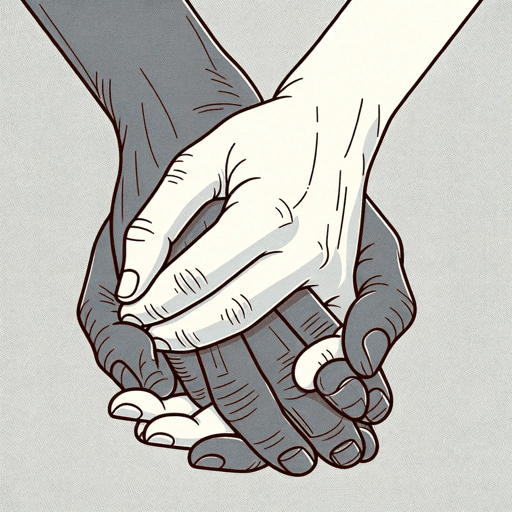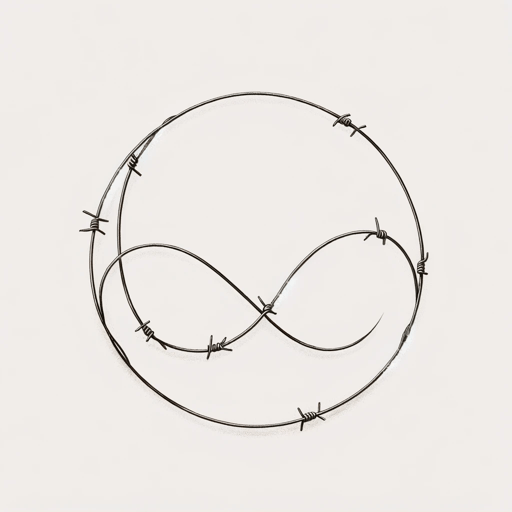26 pages • 52 minutes read
Nadine GordimerSix Feet of the Country
Fiction | Short Story | AdultA modern alternative to SparkNotes and CliffsNotes, SuperSummary offers high-quality Study Guides with detailed chapter summaries and analysis of major themes, characters, and more.
Summary and Study Guide
Summary: "Six Feet of the Country"
Nadine Gordimer’s “Six Feet of the Country” is one of the seven short stories in her collection of the same name (1956). Gordimer, who was born and lived in South Africa, often explored the country’s racial issues in the context of apartheid. She received numerous literary awards, including the 1991 Nobel Prize for Literature. This short story concerns the death of a native of Rhodesia (modern Zimbabwe). When the young man’s family wants to give him a burial, the white mortuary staff’s incompetence thwarts those attempts and ultimately deprives the man of a grave—thus denying him a mere “six feet of the country.”
This study guide cites the 1982 Penguin Books paperback edition of the collection Six Feet of the Country. (Note: Throughout the story, a Black character refers to his white employer as baas. This is an Afrikaans term, loosely meaning “boss”)
The story opens with the unnamed white protagonist, who is also the story’s narrator, discussing how he and his wife, Lerice, bought a farm about 10 miles outside of Johannesburg, South Africa. Though they bought the farm “to change something in [themselves]” (7), the changes to his wife aren’t quite what he expected: Lerice has thrown herself into the farm work despite her ambitions to become a stage actress, upending the protagonist’s predictions that she would melodramatically (if temporarily) languish in the rural isolation. Meanwhile, the protagonist is a partner at a luxury-travel agency, and the job financially supports his wife and the farm. He enjoys spending his weekends on the idyllic farm, despite knowing it’s too expensive and despite the usual marital annoyances. The protagonist feels a sense of “triumph” knowing he and Lerice are no longer affected by the unease of the city, mainly the racial discord between the white and Black populations. He describes country life as reminiscent of life before apartheid, with the relationship between himself, his wife, and their Black employees as “almost feudal. Wrong, I suppose, obsolete, but more comfortable all around” (9). There is no physical violence or much conflict—only respectful cooperation between two separate groups of people. Lerice also takes care of their employees’ children when they fall ill.
However, trouble starts when Lerice wakes him up in the middle of the night, saying one of their employees is sick. The protagonist goes to the employees’ housing where a young man now lies dead from possible pneumonia. Another employee, Petrus, reveals the deceased was his younger brother who traveled from Rhodesia (Zimbabwe) in search of work. Because those native to Rhodesia (Zimbabwe) needed a permit to enter the city, the young man immigrated unauthorized; the employees, therefore withheld from telling the protagonist that he came to the farm and needed help.
Lerice is upset that their employees didn’t feel comfortable telling them about Petrus’s brother, but the protagonist, annoyed at her emotional investment in the situation, states he must contact authorities because the young man’s illness could have been contagious. He goes to both the police and health authorities, and the police who question him consider him ignorant for not knowing the actions of his employees:
And when I flared up and told [the police] that so long as my natives did their work, I didn’t think it my right or concern to poke my nose into their private lives, I got from the coarse, dull-witted police sergeant one of those looks that come not from any thinking process going on in the brain but from that faculty common to all who are possessed by the master-race theory—a look of insanely inane certainty. He grinned at me with a mixture of scorn and delight at my stupidity (12).
A postmortem reveals the cause of death was pneumonia. When Petrus asks when he and the other employees can collect the body, the protagonist states the body was already buried. Petrus doesn’t seem to understand, and as he looks desperately at the protagonist, the protagonist tries to explain but struggles to frame the burial as something less perfunctory than it was. When the protagonist insists that no one can retrieve the body, Lerice urges him to call authorities to confirm it—and he discovers that he can, in fact, have the body exhumed and brought back. Lerice also mentions that Petrus’s father has obtained the necessary permits to travel from Rhodesia (Zimbabwe) to attend the funeral. When the protagonist informs Petrus that the exhumation process costs £20, he believes (and hopes) Petrus will not pay it; Petrus’s monthly salary is a mere £5. However, Petrus gives him the money, donated by multiple employees. The protagonist cannot comprehend why they wish to spend their money on someone who has already passed. He takes the money but is irritated “at the waste, the uselessness of this sacrifice by people so poor. Just like the poor everywhere, I thought, who stint themselves the decencies of life in order to ensure themselves the decencies of death” (15).
After a couple of weeks, Petrus and his father arrive with the body in a coffin for the funeral that Saturday afternoon. The protagonist has forgotten about the funeral, and as he is playing golf, the funeral procession surprises him by coming up the path toward him. He considers resuming his game of golf but feels awkward. The employees and the father remove the coffin from the donkey cart and take the coffin on foot to the old burial ground just outside the farm. However, just as the protagonist returns to his game, the procession abruptly stops and the father leaves the coffin, mumbling. The protagonist hurries through the fence to the scene where the father rushes toward him, saying something in a language the protagonist cannot understand. Petrus translates, explaining that the coffin is too heavy to really be carrying Petrus’s brother, who was small and slender. The father begins rapidly speaking to the procession, who listen quietly, before he tries prying the coffin open with his own hands. The employees comply, and when they open the coffin, everyone is shocked to find a completely different person within—another deceased indigenous person.
The protagonist spends the next week trying to make the mortuary officials find the correct body, but it’s no use: “I had the feeling that they were shocked, in a laconic fashion, by their own mistake, but that in the confusion of their anonymous dead they were helpless to put it right” (18). Though annoyed at how time-consuming the process has been, the protagonist continues searching and becomes worked up in a moral outrage. When Lerice questions why, he states, “It’s a matter of principle. […] It’s time these officials had a jolt from someone who’ll bother to take the trouble” (19). Finally, after weeks, it becomes clear that the body is irrevocably lost due to the authorities’ ineptitude and senseless bureaucracy:
I continued to pass on assurances to Petrus every evening, but […] every evening, it sounded weaker. At last, it became clear that we would never get Petrus’s brother back, because nobody really knew where he was. Somewhere in a graveyard as uniform as a housing scheme, somewhere under a number that didn’t belong to him, or in the medical school, perhaps, laboriously reduced to layers of muscle and strings of nerve? Goodness knows. He had no identity in this world anyway (19).
Petrus then asks if they can get the money refunded from the exhumation, and though both the protagonist and Lerice try, they are unsuccessful. Finally, the protagonist gives up and laments, “So the whole thing was a complete waste, even more of a waste for the poor devils than I thought it would be” (20). Because Lerice gives Petrus’s father one of her own father’s suits for the winter before he goes back to Rhodesia (Zimbabwe), the protagonist supposes that the man is now decidedly “better off” than he was when he came.
Related Titles
By Nadine Gordimer

Burger's Daughter
Nadine Gordimer

July's People
Nadine Gordimer

Jump and Other Stories
Nadine Gordimer

None to Accompany Me
Nadine Gordimer

Once Upon a Time
Nadine Gordimer

The Conservationist
Nadine Gordimer

The Moment Before the Gun Went Off
Nadine Gordimer

The Pickup
Nadine Gordimer

The Train From Rhodesia
Nadine Gordimer

The Ultimate Safari
Nadine Gordimer

